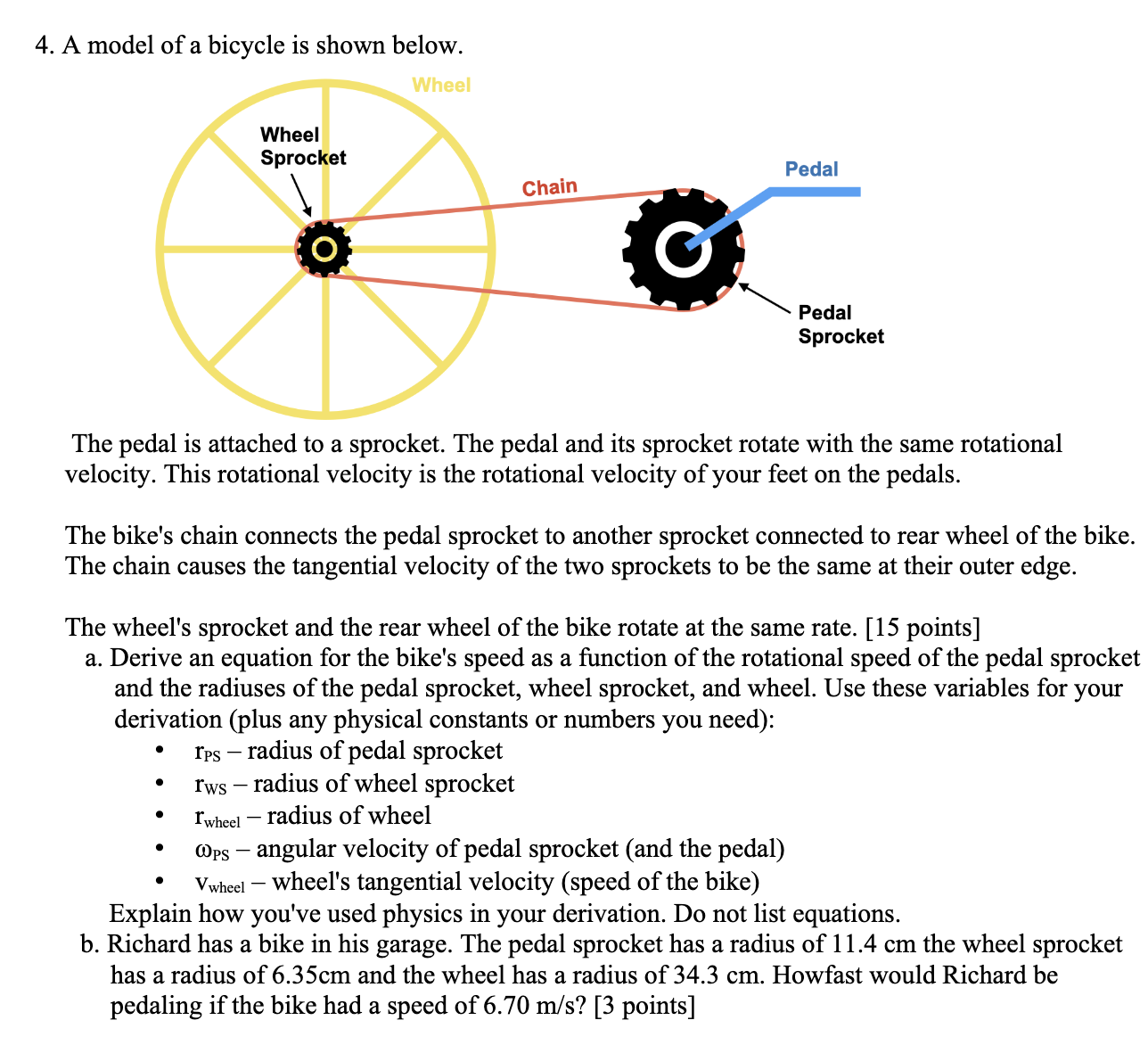Answered step by step
Verified Expert Solution
Question
1 Approved Answer
4. A model of a bicycle is shown below. Wheel Wheel Sprocket Chain G Pedal Pedal Sprocket The pedal is attached to a sprocket.

4. A model of a bicycle is shown below. Wheel Wheel Sprocket Chain G Pedal Pedal Sprocket The pedal is attached to a sprocket. The pedal and its sprocket rotate with the same rotational velocity. This rotational velocity is the rotational velocity of your feet on the pedals. The bike's chain connects the pedal sprocket to another sprocket connected to rear wheel of the bike. The chain causes the tangential velocity of the two sprockets to be the same at their outer edge. The wheel's sprocket and the rear wheel of the bike rotate at the same rate. [15 points] a. Derive an equation for the bike's speed as a function of the rotational speed of the pedal sprocket and the radiuses of the pedal sprocket, wheel sprocket, and wheel. Use these variables for your derivation (plus any physical constants or numbers you need): rps radius of pedal sprocket rws - radius of wheel sprocket I wheel - radius of wheel @ps - angular velocity of pedal sprocket (and the pedal) Vwheel - wheel's tangential velocity (speed of the bike) Explain how you've used physics in your derivation. Do not list equations. b. Richard has a bike in his garage. The pedal sprocket has a radius of 11.4 cm the wheel sprocket has a radius of 6.35cm and the wheel has a radius of 34.3 cm. Howfast would Richard be pedaling if the bike had a speed of 6.70 m/s? [3 points]
Step by Step Solution
There are 3 Steps involved in it
Step: 1

Get Instant Access to Expert-Tailored Solutions
See step-by-step solutions with expert insights and AI powered tools for academic success
Step: 2

Step: 3

Ace Your Homework with AI
Get the answers you need in no time with our AI-driven, step-by-step assistance
Get Started


